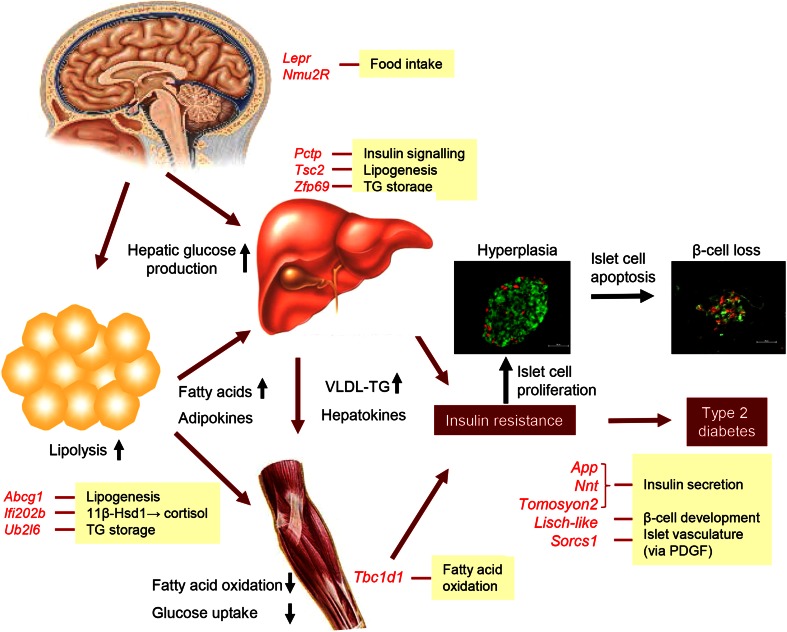Fig. 1.
Pathophysiology of insulin resistance and type 2 diabetes with beta-cell failure, and site of action of candidate genes identified by positional cloning (highlighted in red). In response to increased food intake and/or reduced energy expenditure, obesity develops as a major cause of insulin resistance. Due to impaired signaling, insulin fails to adequately suppress lipolysis in adipose tissue and release of glucose and VLDL from the liver. Furthermore, fatty acid oxidation and glucose uptake by the skeletal muscle are reduced, aggravating insulin resistance and glucose intolerance. In the insulin resistant state, pancreatic islets initially compensate by hyperplasia. However, in the presence of diabetes genes apoptosis results in beta-cell loss and the development of manifest type 2 diabetes

